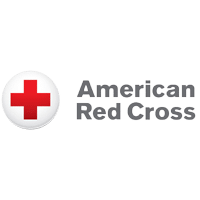No products in the cart.
Uncategorized
Signs & Symptoms Of Heart Failure
Heart failure is a significant health issue affecting over 6.2 million people in the US, according to a 2020 report by the CDC and the American Heart Association. With the aging population, this number is expected to rise. Heart failure is a chronic condition where the heart struggles to pump blood effectively, leading to a variety of symptoms that can range from mild to severe. Early detection and treatment are crucial for slowing the disease’s progression and improving the quality of life for those affected.
What is Heart Failure?
Heart failure occurs when the heart’s pumping ability is compromised, causing insufficient blood flow to meet the body’s needs. This can result from various factors, including risk factors, inherited diseases, and injuries like heart attacks. Heart failure is categorized into four stages (A to D), with each stage representing a progression in the severity of symptoms and heart function impairment.
Symptoms of Heart Failure
Heart failure symptoms often develop gradually and may not be immediately recognized. Common symptoms include:
- Shortness of Breath (Dyspnea): Initially occurring during physical activity, but as heart failure progresses, it can also happen at rest or during sleep.
- Constant Coughing: Often due to fluid buildup in the lungs, leading to frequent coughing, especially at night or when lying down.
- Swelling: Particularly in the legs, ankles, and feet, due to blood accumulation in the veins.
- Rapid Weight Gain: A sign of fluid retention, significant weight gain over days or weeks can indicate worsening heart failure.
- Fatigue: Persistent tiredness and weakness due to the heart’s inability to supply sufficient blood to the body.
Managing Heart Failure
Managing heart failure involves lifestyle changes, medications, and sometimes surgical interventions. Key strategies include:
- Lifestyle Changes: Eating a healthy diet, staying active, limiting alcohol and caffeine, losing weight, managing stress, quitting smoking, and ensuring adequate rest.
- Medications: Commonly prescribed medications include ACE inhibitors, beta-blockers, and diuretics to manage blood pressure, reduce heart strain, and remove excess fluid.
- Surgical Interventions: In severe cases, procedures like heart valve repair, cardiac resynchronization therapy (CRT), or implantable cardioverter defibrillator placement (ICD) may be necessary. In extreme cases, a heart transplant might be recommended.
Warning Signs of Worsening Heart Failure
Monitoring for worsening symptoms is crucial for managing heart failure. Signs that heart failure may be getting worse include:
- Increased shortness of breath, especially during daily activities or at rest.
- Persistent or worsening cough.
- Swelling in the legs, ankles, or feet.
- Rapid and significant weight gain.
- Increased fatigue and weakness.
When to Seek Medical Attention
Immediate medical attention is necessary if:
- There is a sudden increase in shortness of breath.
- Breathing becomes difficult while lying flat.
- Chest pain develops.
If experiencing extreme shortness of breath, chest pain, or signs of a heart attack, call 911 immediately.
FAQs About Heart Failure
What are the symptoms of the last stages of heart failure?
In the final stages of heart failure (Stage D), symptoms become more severe and can include extreme fatigue, significant swelling, difficulty breathing even at rest, frequent hospitalizations, and possibly the need for advanced therapies or hospice care.
What is advanced heart failure?
Advanced heart failure, or Stage D heart failure, occurs when the condition has progressed to the point where conventional treatments are no longer effective. Patients may require specialized treatments, including mechanical circulatory support or heart transplantation.
What symptoms should I track if I have heart failure?
Patients should monitor shortness of breath, swelling in the legs or feet, rapid weight gain, persistent coughing, and fatigue. Keeping a symptom diary can help track changes and communicate effectively with healthcare providers.
Can you have heart failure with no symptoms?
Yes, it is possible to have heart failure with minimal or no symptoms, especially in the early stages. Regular check-ups and monitoring are essential for early detection and management.
Is diarrhea a symptom of congestive heart failure?
Diarrhea is not a typical symptom of congestive heart failure. Common symptoms include shortness of breath, swelling, fatigue, and rapid weight gain. If diarrhea occurs, it may be due to other causes and should be evaluated by a healthcare provider.
What are the stages of heart failure?
The stages of heart failure are:
- Stage A: High risk for developing heart failure but without structural heart disease or symptoms.
- Stage B: Structural heart disease is present but without symptoms of heart failure.
- Stage C: Structural heart disease with prior or current symptoms of heart failure.
- Stage D: Advanced heart failure requires specialized interventions.
Conclusion
Heart failure is a complex and chronic condition that requires careful management and monitoring. By recognizing the symptoms, making lifestyle changes, adhering to prescribed treatments, and maintaining regular communication with healthcare providers, individuals can manage heart failure effectively and improve their quality of life. Early detection and proactive care are crucial in reducing the risk of hospitalization and severe complications.
For more information and resources, visit the American Heart Association’s website, which offers symptom trackers, self-check guidelines, and discussion topics to help patients and their caregivers manage heart failure effectively.





